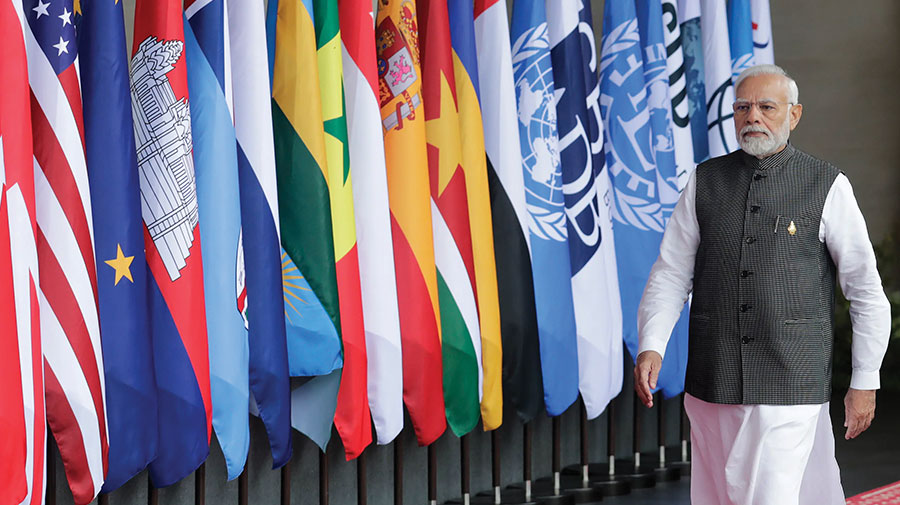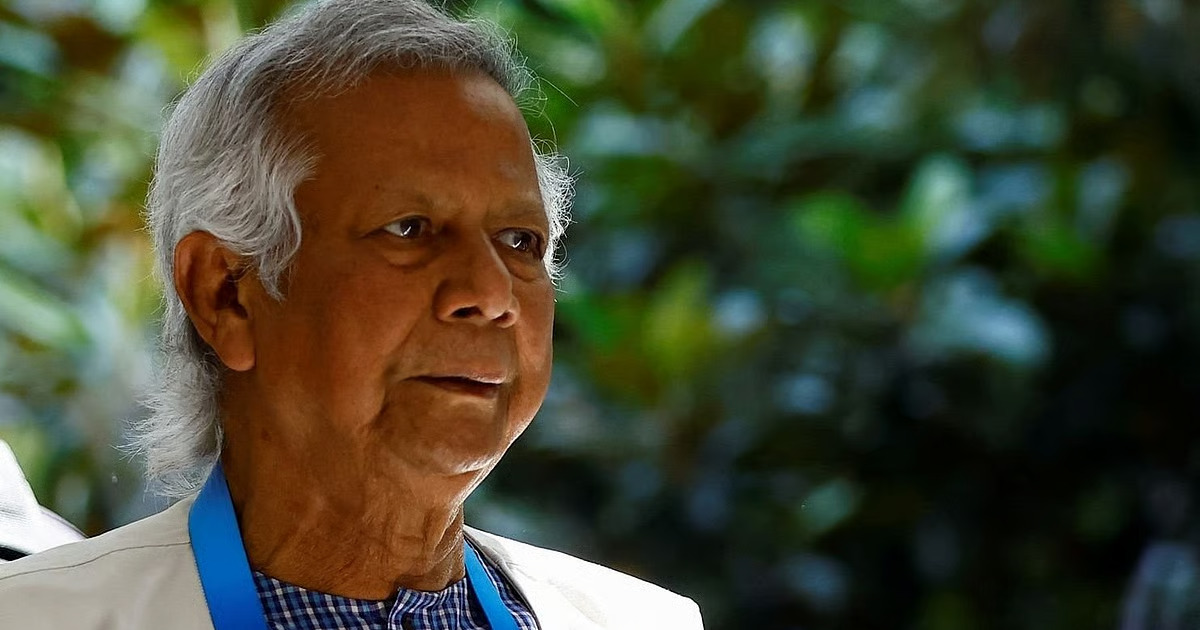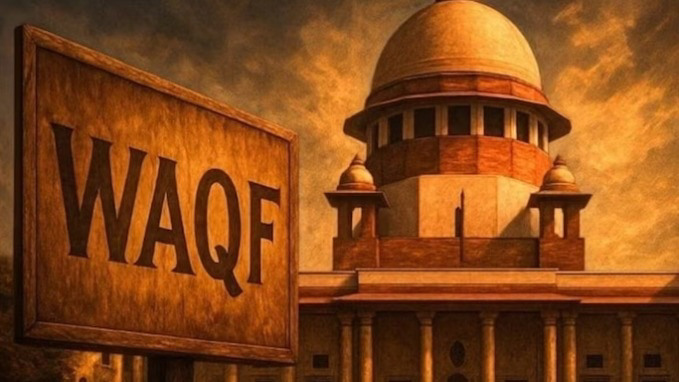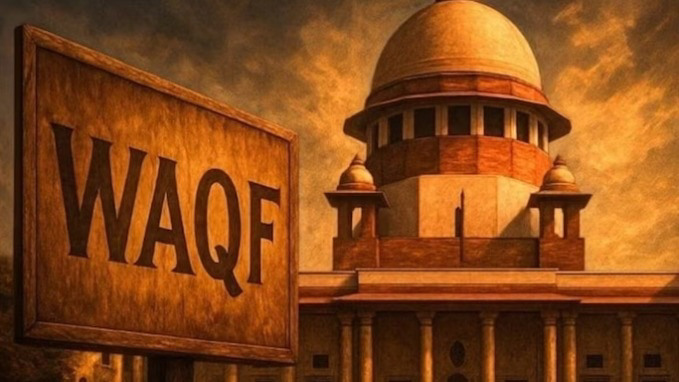India’s Energy Diplomacy Marks a New Era of Strategic Autonomy

The foundation of India–United States relations has always been multidimensional. At times, the engagement appeared restricted to strategic cooperation; at others, it expanded into areas of energy security, defense purchases, technology transfers, and partnership on the global stage. Yet recent months have underlined an important shift. The United States, under President Donald Trump, had openly criticized India, with even senior advisers voicing disapproval over New Delhi’s decisions. What emerged from this friction was a clear message: India is no longer inclined to bend under American pressure. Instead, it is making decisions aligned with its national interests and long-term strategies, even if Washington finds them hard to accept. Interestingly, after a few months of strained ties, the U.S. itself seems to be recalibrating, adopting a softer approach.
This paradox captures the essence of contemporary diplomacy. Trump, who had once taken repeated swipes at India, now publicly describes Prime Minister Narendra Modi as one of his most trusted friends. Modi, however, has responded in a measured, balanced tone, making it clear that friendship does not equate to special concessions. India will continue to adjust its foreign policy according to its priorities, not external demands. This balance is now becoming evident in India’s energy policy as well, where strategic autonomy is taking center stage.
The recent decision by Indian Oil Corporation (IOC) stands as a strong example of this evolving approach. Instead of committing large-scale purchases of American crude oil, IOC has opted for diversified sourcing by buying from West Africa and the Middle East. Specifically, India has procured two million barrels of Agbami and Usan crude from Nigeria and one million barrels of Das crude from Abu Dhabi. Until recently, IOC had been importing up to five million barrels of West Texas Intermediate (WTI) crude from the United States. The shift away from U.S. supplies not only reflects economic prudence but also sends a strategic signal: India will not allow itself to be overly dependent on any single supplier.
For Washington, this decision carries significant implications. The U.S. has transformed into a major crude exporter and has long regarded India as a stable and expansive market for its energy exports. Trump’s administration, in particular, envisioned India as a permanent customer for American crude. Yet by diversifying supply, India has demonstrated that its economic choices will not be dictated by the political or commercial interests of others.
This is part of a larger energy security doctrine that emphasizes stability through diversity, ensuring resilience amid global market volatility, geopolitical frictions, and regional conflicts.
India had already tested this approach during the Russia–Ukraine war, when it prioritized discounted Russian oil despite immense Western pressure. That decision brought direct economic benefits to India but strained relations with the U.S., which retaliated by imposing tariffs. Instead of buckling under pressure, New Delhi responded with diplomacy and pragmatism, scouting for new alternatives in Africa and the Middle East. The latest IOC decision to source oil from Nigeria and Abu Dhabi is therefore not an isolated move but part of a well-calibrated strategy. It reduces American leverage, while also strengthening India’s ties with regions eager for dependable markets.
For African producers such as Nigeria and Angola, India’s engagement offers stability. These countries often struggle to secure long-term buyers in a highly competitive global energy market. By stepping in as a reliable partner, India not only ensures its own supply security but also builds goodwill with resource-rich African nations. Simultaneously, closer ties with Abu Dhabi enhance India’s presence in the Middle East, a region that remains vital for global energy flows. By negotiating oil on both “delivered” and “free-on-board” terms, India is also spreading logistical and pricing risks, further demonstrating its capacity to deal on its own terms.
It is essentia” to understand that India’s energy policy is not confined to oil alone. It is interwoven with the broader contours of its foreign policy. When Trump extends gestures of friendship and Modi responds with calm restraint, the diplomacy at play is not merely personal but systemic. India is signaling that relationships will not translate into dependency. For the U.S., this is a lesson that engagement with India must be built on equality and mutual respect, not assumptions of compliance.
The most striking takeaway from these developments is India’s march toward greater self-reliance in energy diplomacy. By widening its supplier base, India strengthens its bargaining power in the global market. Volatility in oil prices will have a diminished effect, and supply continuity will be easier to maintain. Such outcomes directly reinforce domestic energy security, which is crucial for sustaining growth. Moreover, the decision sends a clear message to Washington: India values friendship and cooperation, but it will not compromise on policy independence.
Energy has always been the decisive force in global politics. Europe’s crisis of dependence on Russian gas, China’s expanding grip on Central Asian and African energy corridors, and America’s efforts to wield influence through shale gas exports illustrate how power is often measured in barrels and pipelines. Against this backdrop, India’s recalibration does more than serve immediate economic needs. It positions India as a decisive player in shaping global energy flows. By engaging Africa and the Middle East, India unlocks new diplomatic and economic opportunities while bolstering its strategic flexibility.
The larger reality is unmistakable: India has outgrown the phase when it required validation from Washington or any other major power. Today, it defines its choices around its own interests and invites the world to cooperate on equal terms. Whatever criticism may come, the principle is clear—dialogue with India will only advance under the condition of equality. The IOC decision to rebalance oil imports is not just an energy deal; it is a vivid expression of the new India’s foreign policy posture—assertive, independent, and determined to chart its own course.
(Author, a JNU PhD in International Relations, is a senior EW columnist.)

 3 weeks, 6 days ago
3 weeks, 6 days ago











[[comment.comment_text]]